Indigenous Governance Database
Governance
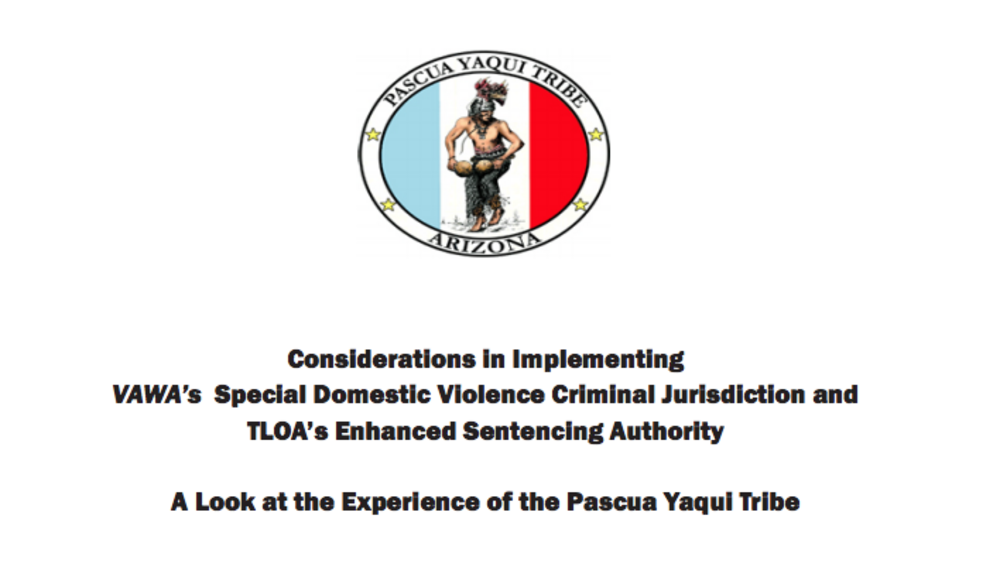
Considerations in Implementing VAWA's Special Domestic Violence Criminal Jurisdiction and TLOA's Enhanced Sentencing Authority: A Look at the Experience of the Pascua Yaqui Tribe
On February 20, 2014, pursuant to the Violence Against Women Reauthorization Act of 2013 (VAWA 2013), the Pascua Yaqui Tribe was one of only three Tribes across the United States to begin exercising Special Domestic Violence Criminal Jurisdiction (SDVCJ) over non-Indian perpetrators of domestic…
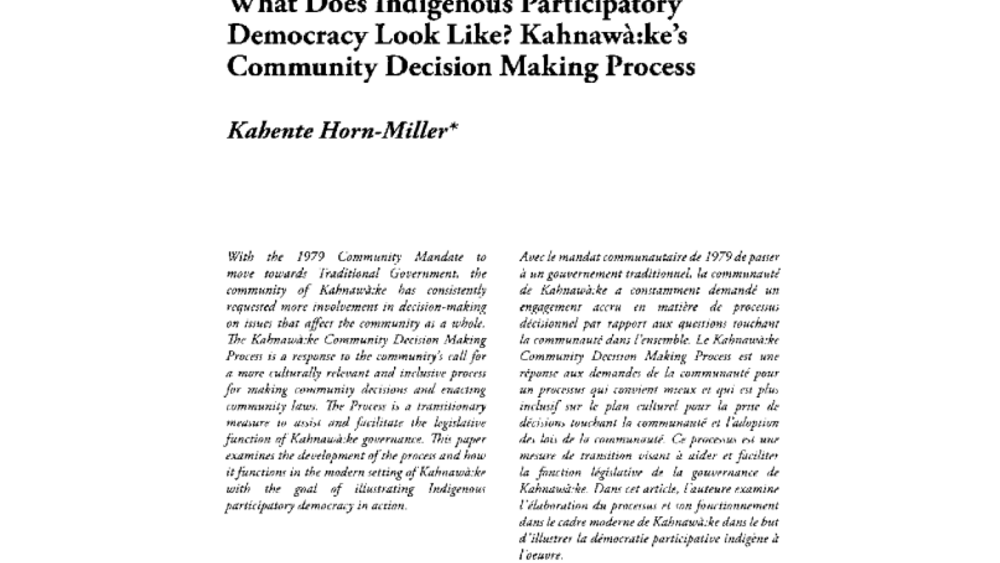
What Does Indigenous Participatory Democracy Look Like? Kahnawà:Ke's Community Decision Making Process
With the 1979 Community Mandate to move towards Traditional Government, the community of Kahnawà:ke has consistently requested more involvement in decision-making on issues that affect the community as a whole. The Kahnawà:ke Community Decision Making Process is a response to the community's call…
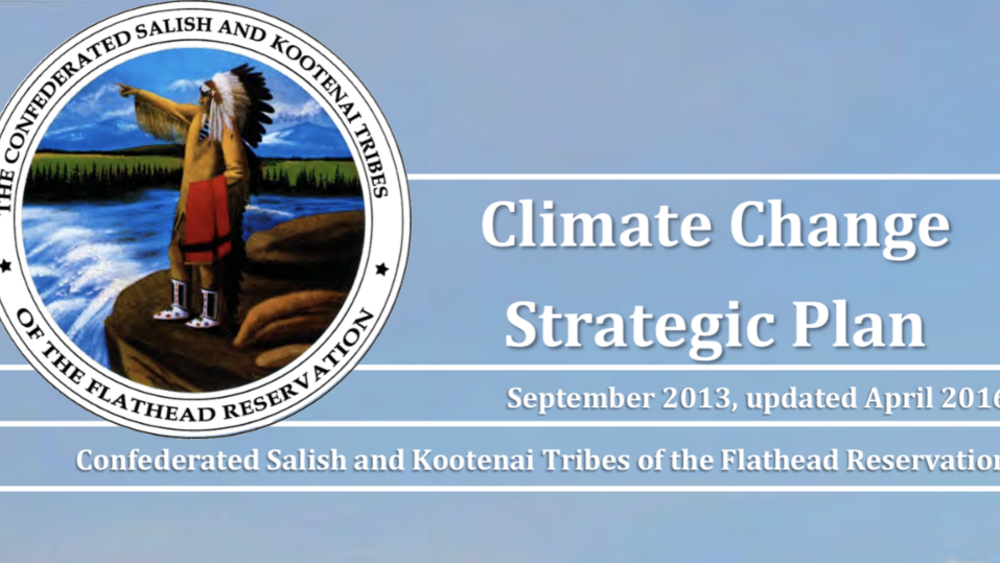
Confederated Salish & Kootenai Tribes Climate Change Strategic Plan
Overwhelming scientific evidence demonstrates that human inputs of greenhouse gases are almost certain to cause continued warming of the planet. (Environmental Protection Agency, 2013) The Northwest has already observed climate changes including an average increase in temperature of 1.5°F over the…
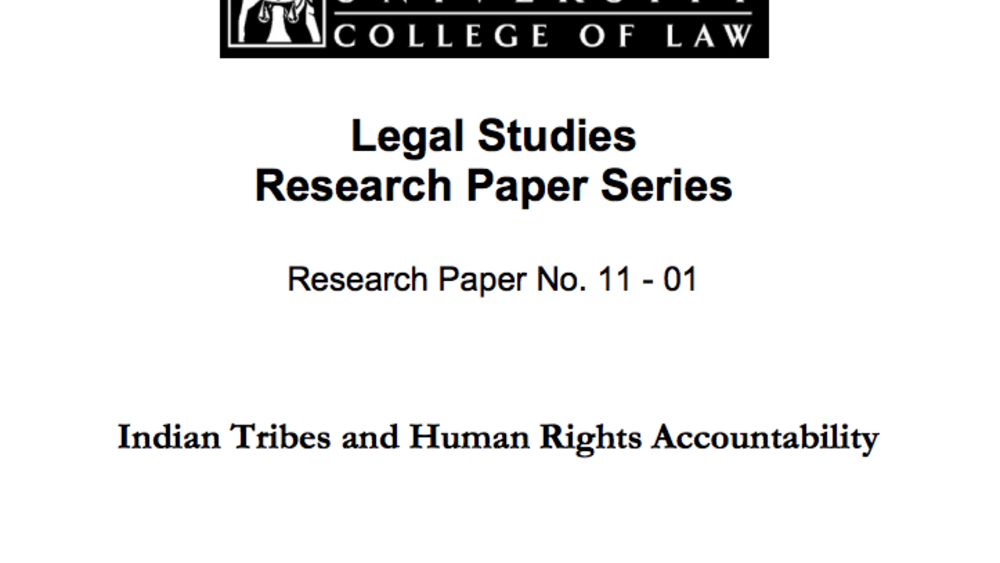
Indian Tribes and Human Rights Accountability
In Indian country, the expansion of self-governance, the growth of the gaming industry, and the increasing interdependence of Indian and non-Indian communities have intensified concern about the possible abuse of power by tribal governments. As tribes gain greater political and economic clout on…
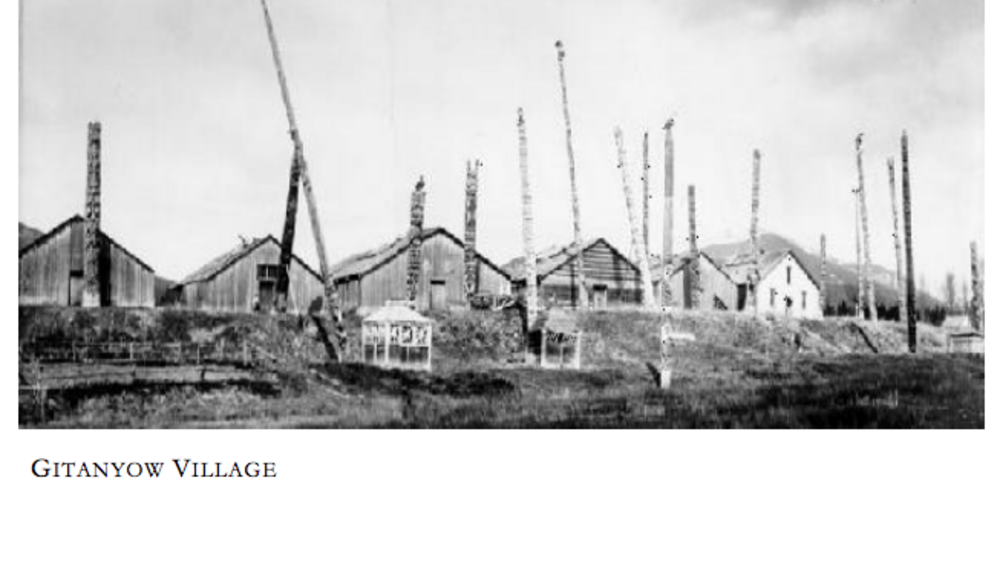
The Gitanyow Ayookxw: The Constitution of the Gitanyow Nation
WE are the Gitanyow peoples. We have a long-standing and rich oral tradition which speaks to all aspects of our lives. This written Constitution must be interpreted and understood in the context of our oral history and oral traditions... THEREFORE, by virtue of our inherent right to…
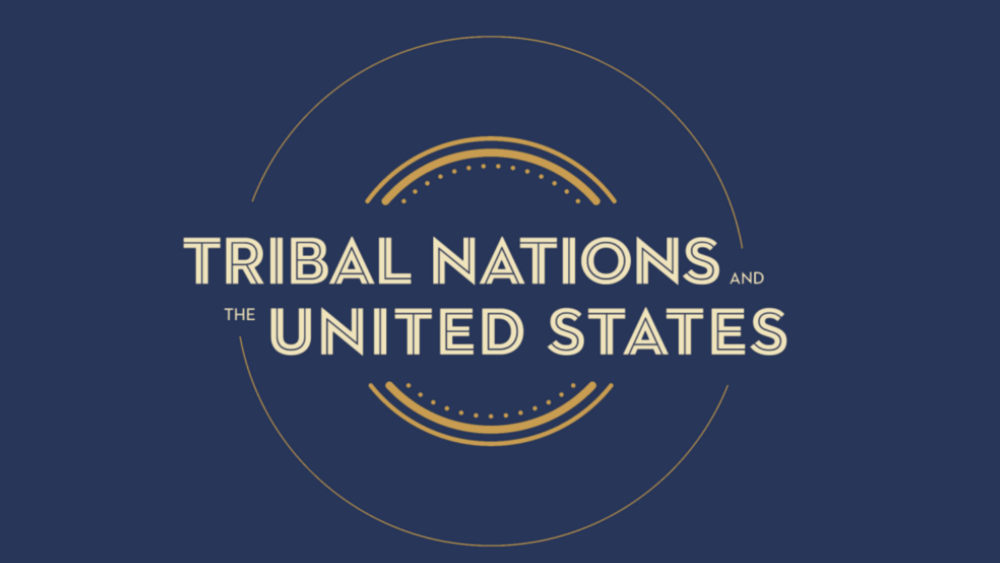
Tribal Nations and the United States: An Introduction
Tens of millions of Indigenous peoples inhabited North America, and governed their complex societies, long before European governments sent explorers to seize lands and resources from the continent and its inhabitants. These foreign European governments interacted with tribes in diplomacy, commerce…
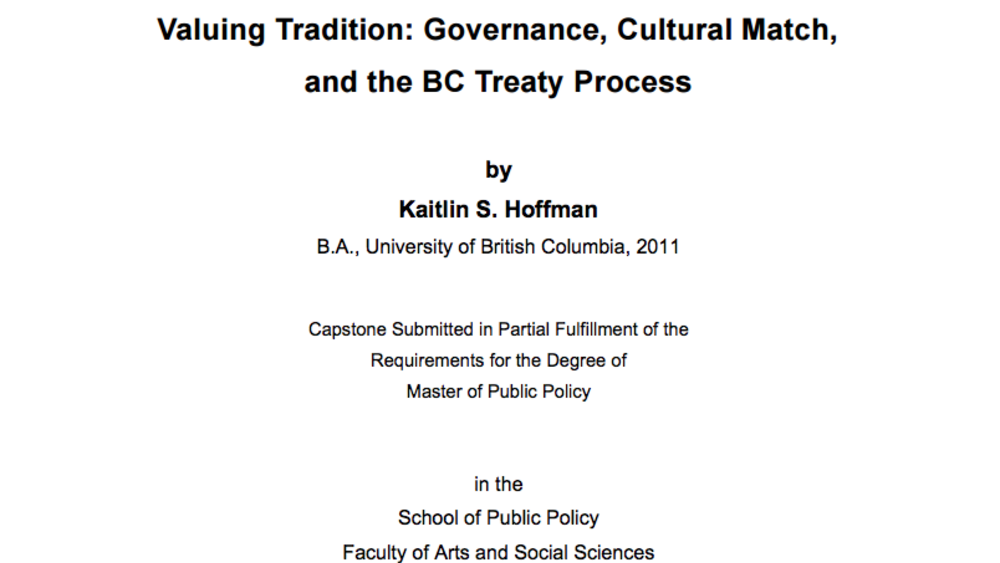
Valuing Tradition: Governance, Cultural Match, and the BC Treaty Process
Self-governance negotiations are an integral part of British Columbia's modern day treaty process. At some treaty tables, impasses have resulted from differences on how to include traditional First Nations governance within treaty. Although some First Nations are determined to pursue traditional…
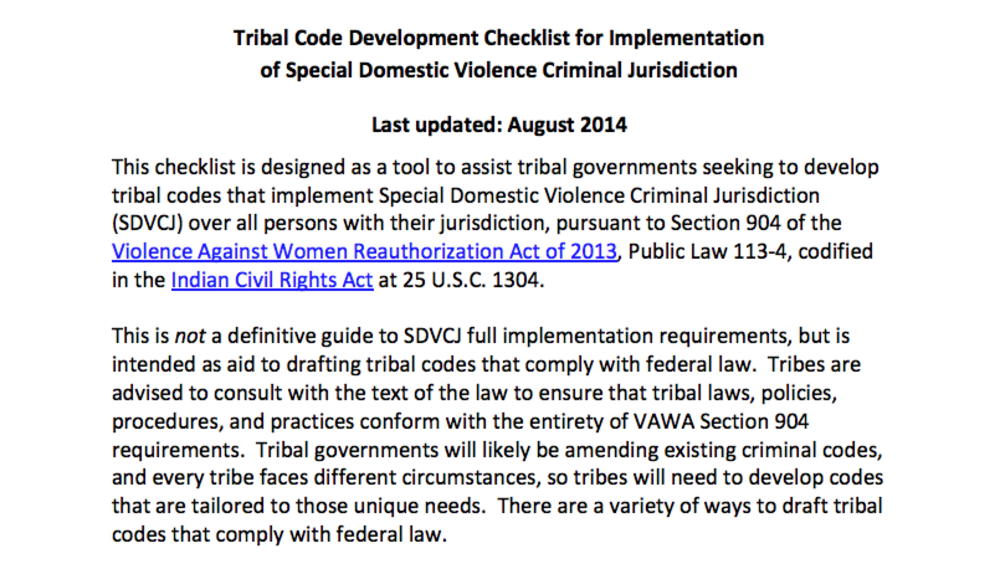
Tribal Code Development Checklist for Implementation of Special Domestic Violence Criminal Jurisdiction
This checklist (click to download) is designed as a tool to assist tribal governments seeking to develop tribal codes that implement special domestic violence criminal jurisdiction (SDVCJ) under section 904 of VAWA 2013. Tribal governments will likely be amending existing criminal codes, and every…
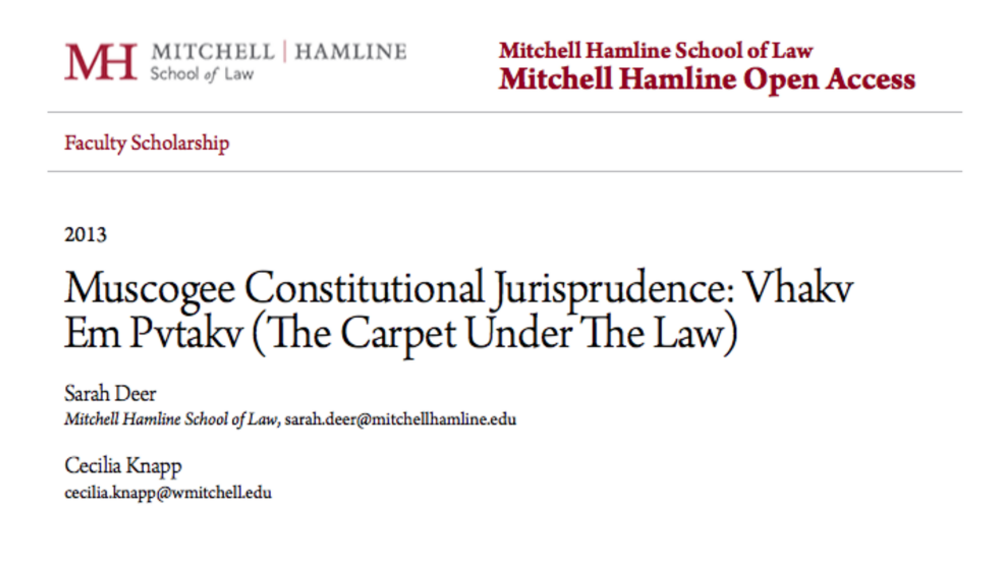
Muscogee Constitutional Jurisprudence: Vhakv Em Pvtakv (The Carpet Under The Law)
In 1974, a group of Mvskoke citizens from Oklahoma sued the federal government in federal court. Hanging in the balance was the future of Mvskoke self-determination. The plaintiffs insisted that their 1867 Constitution remained in full effect, and that they still governed themselves pursuant to it…
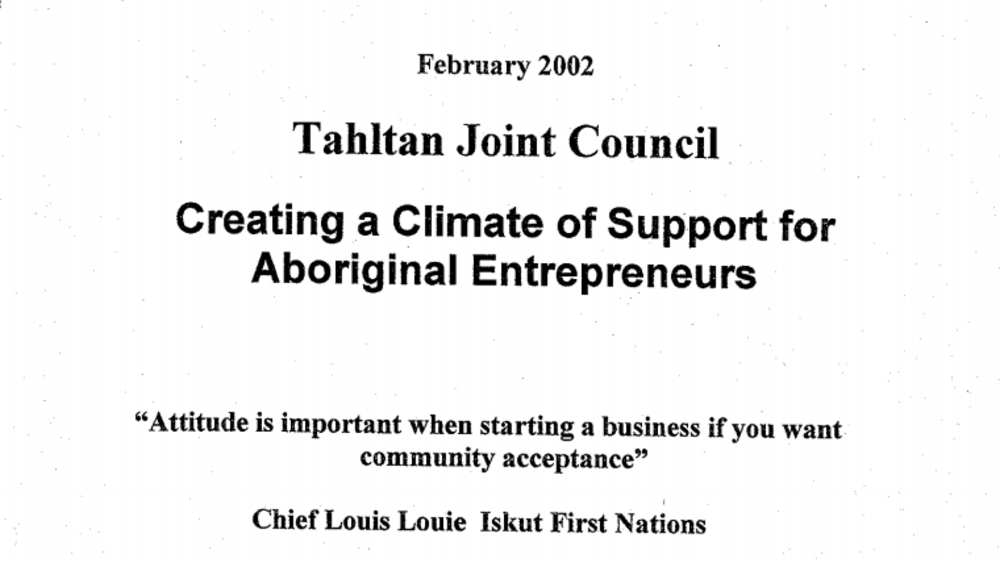
Creating a Climate of Support for Aboriginal Entrepreneurs
Three First Nations communities formed a partnership with SFU to investigate ways to create a supportive environment for Aboriginal entrepreneurs. This project followed the Western Diversification/Simon Fraser University study (2001) on the information and service needs of Aboriginal entrepreneurs…
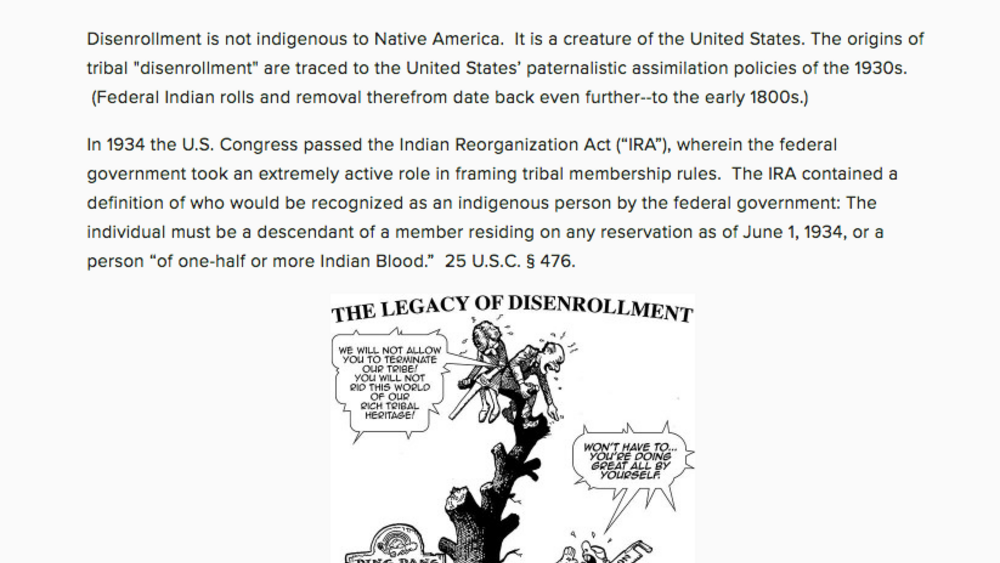
An Essay on the Federal Origins of Disenrollment
Disenrollment is not indigenous to Native America. It is a creature of the United States. The origins of disenrollment are traced to the United States’ paternalistic assimilation policies of the 1930s. In 1934 the U.S. Congress passed the Indian Reorganization Act (“IRA”), wherein the federal…
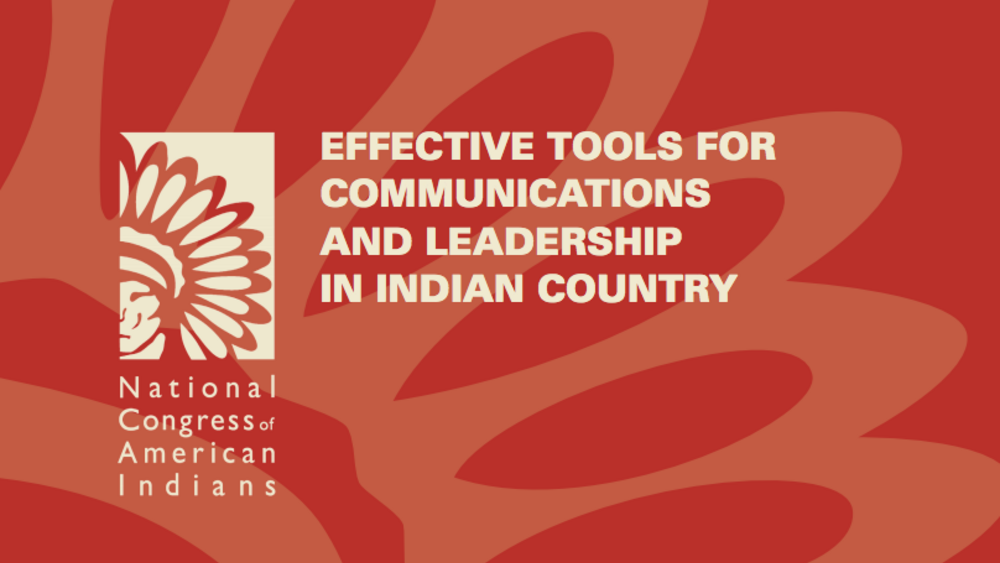
Effective Tools for Communications and Leadership in Indian Country
A thirty-six page toolkit, this NCAI publication outlines the tools, tactics, and strategies from tribal communications experts. The toolkit aims to help tribal leaders and Indian Country advocates in ever changing media and communications landscape.
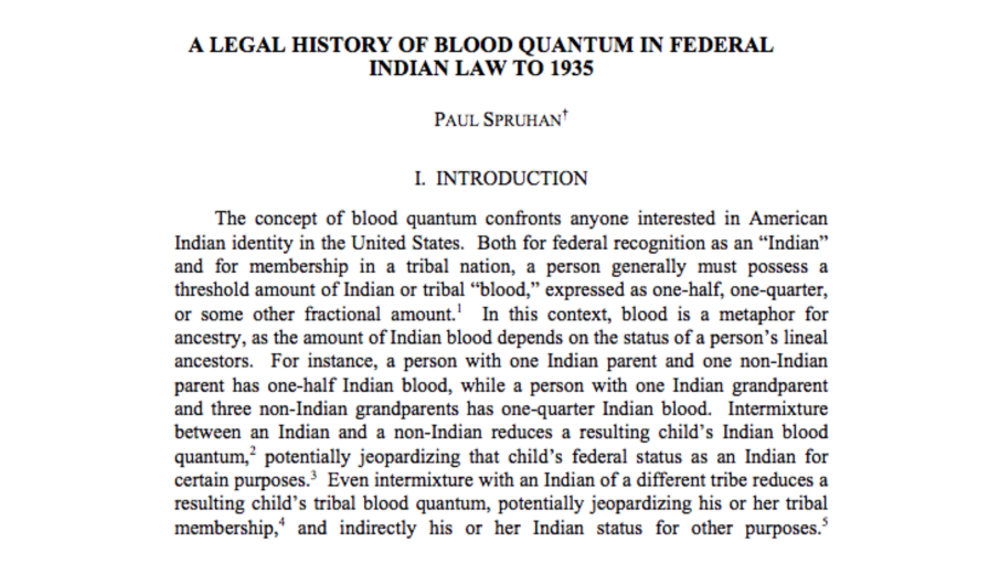
A Legal History of Blood Quantum in Federal Indian Law to 1935
The paper traces the development of the use of blood quantum, or fractional amounts of Indian blood to define Indian in federal law up to the Indian Reorganization Act of 1934. The paper shows that blood quantum was not widely used in federal law until the twentieth century, as the branches of the…
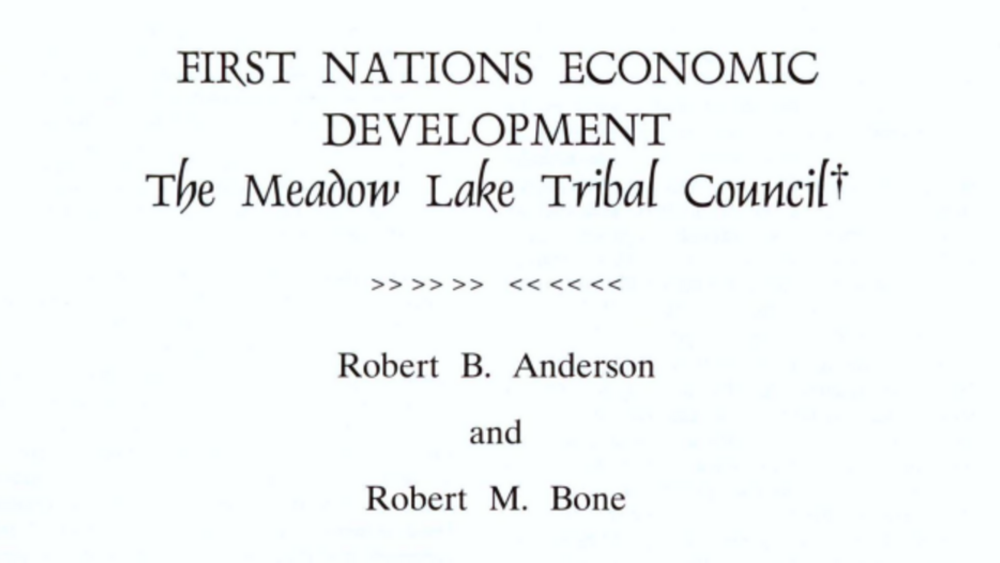
First Nations Economic Development: The Meadow Lake Tribal Council
A new approach to economic development is emerging among the First Nations in Canada. This approach emphasizes the creation of profitable businesses competing in the global economy. These businesses are expected to help First Nations achieve their broader objectives that include: (i) greater…
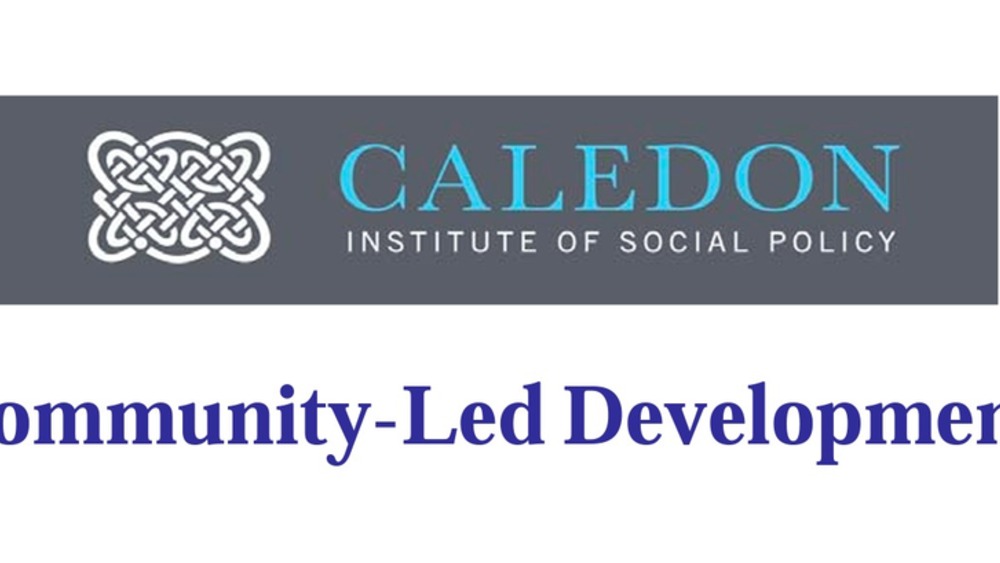
Community-Led Development
The purpose of this paper is to explore the concept and practice of community-led development. It is an approach to tackling local problems that is taking hold throughout the world. While its expression may vary depending upon the community and the specific area of focus, there are nonetheless some…
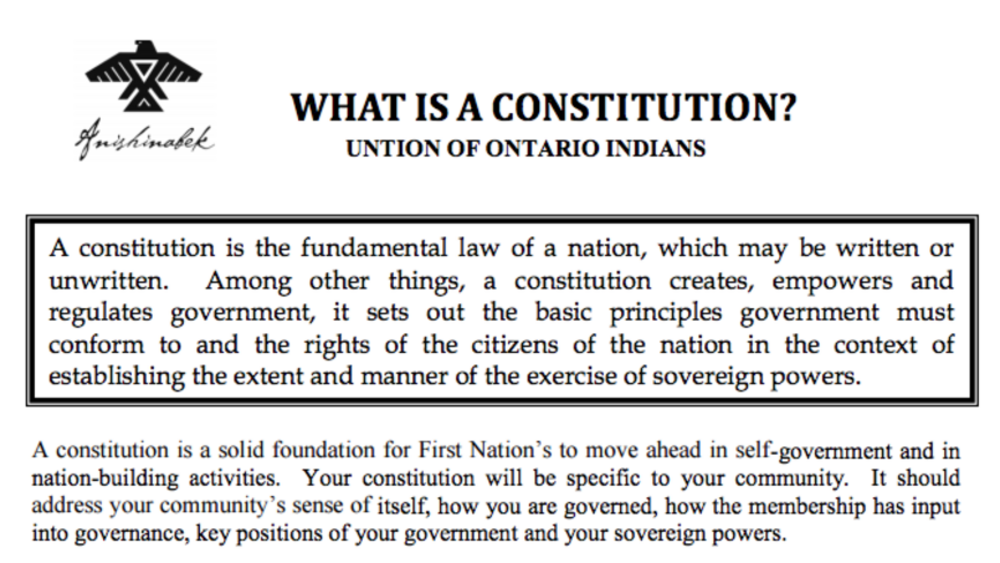
First Nation Constitutions
A constitution is a solid foundation for First Nations to move ahead in self-government and in nation-building activities. Your constitution will be specific to your community. It should address your community's sense of itself, how you are governed, how the membership has input into governance,…
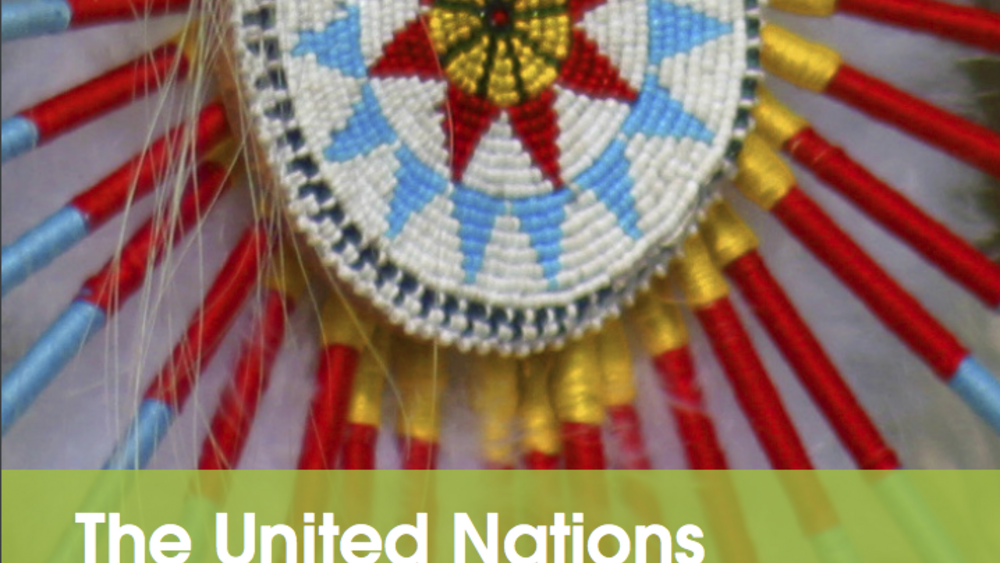
The United Nations Declaration on the Rights of Indigenous Peoples: With an Introduction for Indigenous Leaders in the United States
On September 13, 2007, the United Nations General Assembly adopted the Declaration on the Rights of Indigenous Peoples, affirming that indigenous peoples are equal to all other peoples and have the right to self-determination, along with an array of related rights, including rights to traditional…
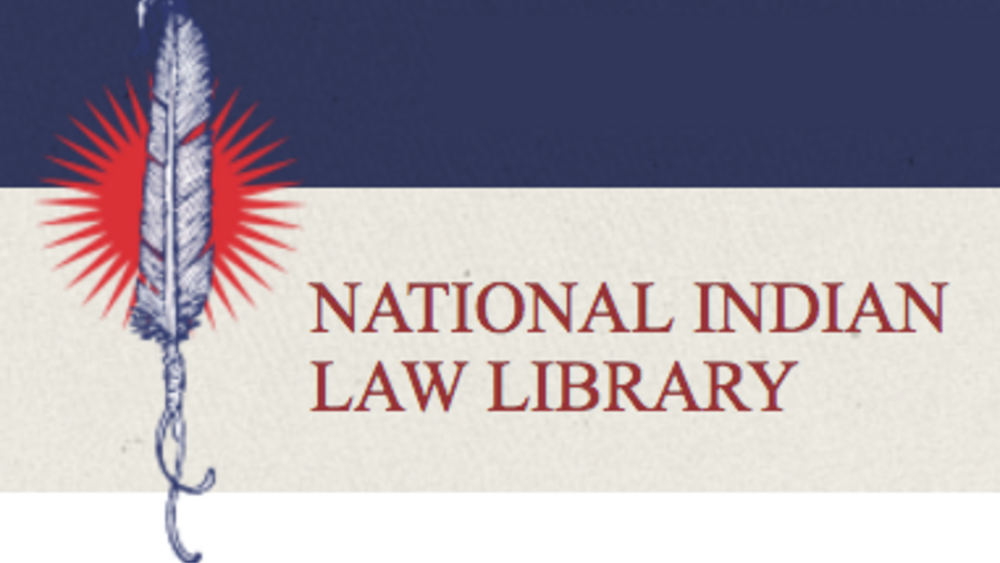
Peacemaking and Conflict Resolution: A List of Resources
The Native American Rights Fund's National Indian Law Library provides a comprehensive list of relevant news stories and academic articles on the peacemaking mechanisms and conflict resolution approaches of Native nations.
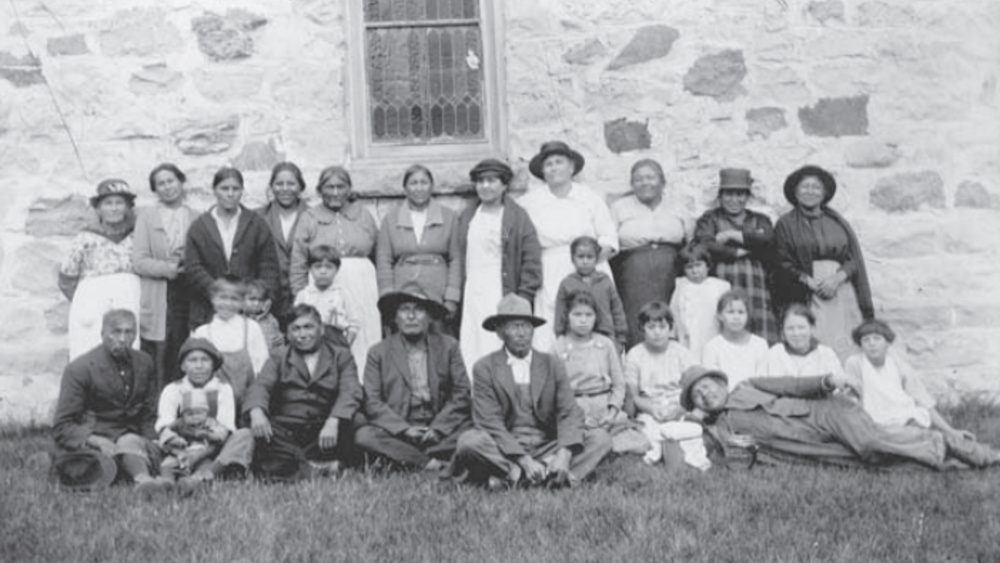
An Anishinaabe Tribalography: Investigating and Interweaving Conceptions of Identity During the 1910s on the White Earth Reservation
This article explores the varied ways in which the Anishinaabeg of White Earth defined themselves during the early twentieth century. It consists of two primary parts. In part 1 I go beyond the artifacts in order to enliven the history, to offer an alternative way of remembering the past. In…
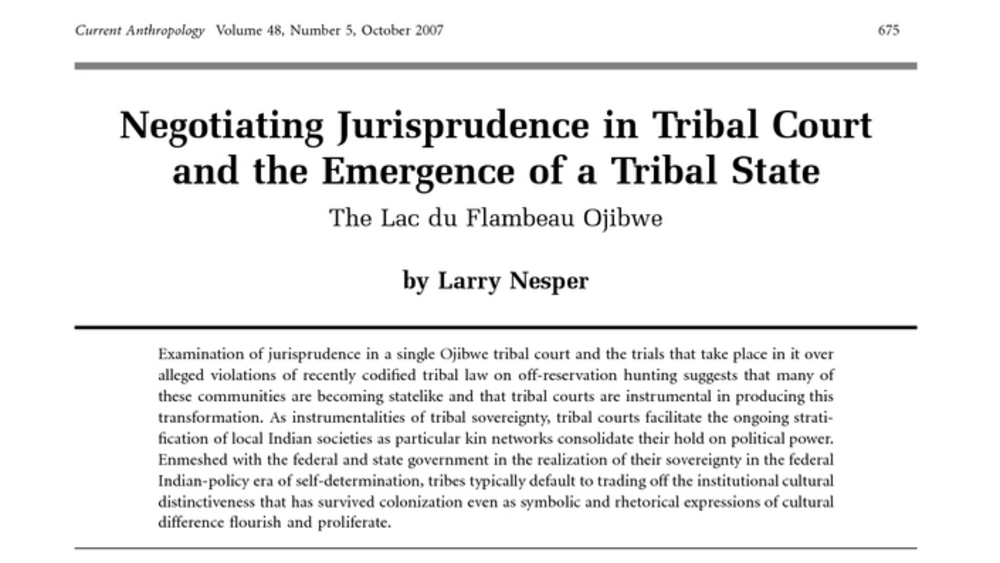
Negotiating Jurisprudence in Tribal Court and the Emergence of a Tribal State: The Lac du Flambeau Ojibwe
The interaction between American Indian activism and changes in federal Indian policy since the 1960s has transformed American Indian tribes from largely powerless and impoverished kinshipâ€based communities into neocolonial statelike entities (Wilkinson 2005).1 Representing themselves as distinct…
Pagination
- First page
- …
- 36
- 37
- 38
- …
- Last page
